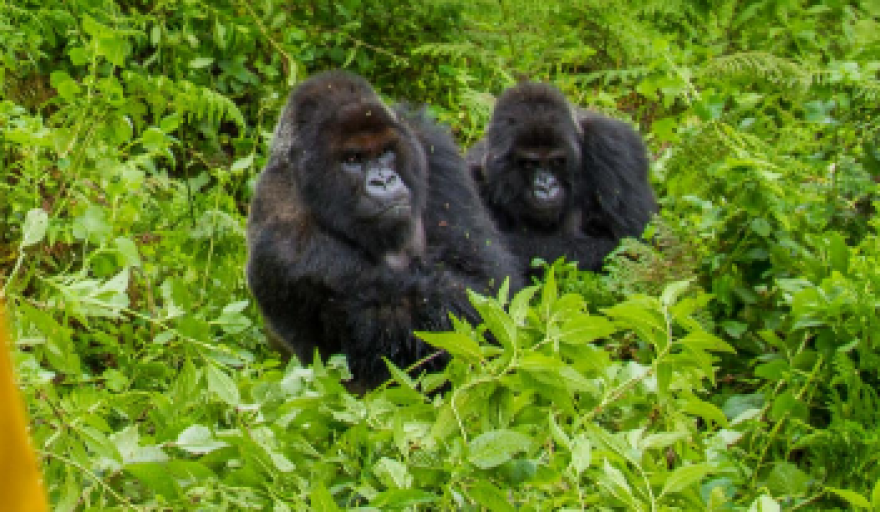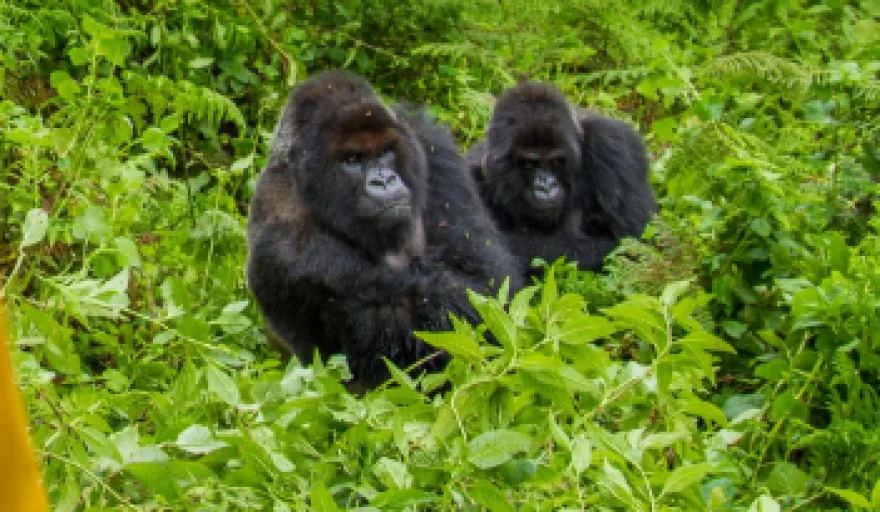
For eight years the travel and tourism industry has been growing faster than global GDP.
In 2018 the sector expanded by 3.9 percent (versus 3.2 percent global GDP growth) and contributed $8.8 trillion and 319 million jobs to the world economy, a record-breaking return.
And the trend is set to continue. The travel and tourism sector now accounts for one in five of all new jobs created worldwide and is forecast to contribute 100 million new jobs globally over the next 10 years, accounting for 421 million jobs by 2029.
One vibrant subsector gaining traction is ecotourism.
Representing more than 150,000 professionals, individuals and organisations across 190 countries, The International Ecotourism Society (TIES) has been advocating ecotourism activity since 1990, citing it as a solution to the problem of over-tourism.
According to TIES, 4.9 percent of global emissions stem from tourist activity, largely through transportation hotels, while in some countries tourism accounts for some six percent of water consumption.
However, in regard to acting for the betterment of the global environment and societies the world over, the organisation recognises that the industry is “uniquely positioned because people are compelled to protect what they love”.
In focus – Rwanda
In Rwanda, the construction Nyandungu Urban Wetland Eco-Tourism Park reflects this sentiment.
Located in the largest valley of the country’s capital city, Kigali, the park will span 134 hectares and echos its wider plans to become a 100 percent carbon emission free nation in the coming decades.
Costing around $5 million to build, it is expected to be completed in 2022/2023 after the Rwandan government decided to appoint a new contractor to the project earlier this year.
Speaking to Rwandan news outlet The New Times, Jules Djangwani, the project coordinator at Rwanda Environment Management Authority, said: “The budget has increased because there are changes and additional elements from initial quotation.
“For example, the design of the man-made lakes changed to be able to synchronise with a river that crosses through the proposed park. There are also additional infrastructures.”
Once finished, the project is expected to provide social and economic advantages to surrounding communities and support biodiversity and conservation across the 134-hectare site.
Djangwani added: “We have started planting forests composed of native species, paving bicycle and pedestrian pathways, excavation of the man-made lakes for recreational purposes and setting up a drainage system to control flooding among other activities.”
The Nyandungu Urban Wetland Eco-Tourism Park will also house facilities for meetings, events and even weddings, the river dividing it into two distinct parts.
In terms of generating revenue, the park will charge an entrance fee to visitors, optional guide fees, and provide photography services, with certain areas of the site potentially available for hire if proposed events match up with its ecological ethos.
Indeed, Rwanda has won a reputation for tackling green issues.
For example, its ban on plastic bags has been enforced for a decade, while its new Bugesera Airport will be the first green airport in Africa once it is finished by the end of 2020.
Back in the ecotourism realm, huge efforts have gone into preserving one of the country’s greatest natural assets – the gravely endangered mountain gorilla.
Volcanoes National Park is home to a safe sanctuary for these magnificent animals, where small groups of tourists can see them in their natural habitat. Due to the income generated by these visits (it is not cheap to go and see them), local residents are aware they will earn more by keeping mountain gorillas alive.
In May 2017, the Rwandan tourism board increased permits for gorilla trekking from $750 to $1,500, the increase in levy aimed at developing the communities in and around Volcanoes National Park. Specialised gorilla treks can cost as much as $15,000.
As well as being one of very few safe homes for mountain gorillas, Volcanoes National Park is also Africa’s oldest national park and arguably one of its most spectacular, opening in 1925 and home to no fewer than five volcanoes in its 160-square-kilometre basin.
In the Congo, however, the story is a far different one. Gorillas are often caught in the crossfire of militia warfare or fall victim of poachers, who kill them and sell their meat or keep them alive as trophies.
Rwanda, thanks to its ambitious conservation ambitions and the value placed on seeing its wildlife in their habitats, is turning itself into a flagbearer for regional ecotourism.
Rwandan tourism by numbers
- $438 million – revenue generated by tourism in 2017
- 1.2 million – number of visitor arrivals in 2017
- $43 – average daily amount spent by tourists
- 201 – number of business events hosted by Rwanda in 2018
- 38,745 – number of conference delegates hosted in 2018
- $300 – average daily spend of conference attendees between January and July

























